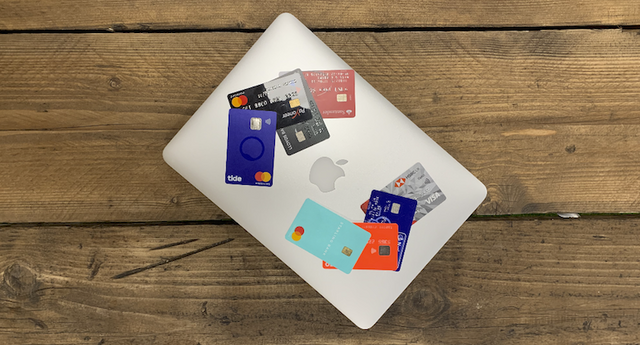11 Fascinating Facts About eCommerce
This article has been updated for 2019!
Modern-day eCommerce is a beautiful thing when you take a moment to think about it.
You can buy almost anything nowadays with just a few clicks, all thanks to the thousands of businesses offering their wares on eCommerce platforms like those supported by Magento. Clothes, appliances, gadgets, food, drink, even cars – the list of what you can buy online is endless and all you need is an internet connection!
It’s hard to ignore online shopping these days, and with the increase in the use of smartphones over the last few years, eCommerce has become a major part of our everyday lives. With that in mind, we thought we would bring together 11 fascinating facts about eCommerce to celebrate all things online shopping!
In true homage to one of the most important aspects of everyday life around the world, here’s our collection of eCommerce facts you might not have heard before…
Pizza Hut Was One Of The First
The renowned pizza giants actually first started offering online ordering for their pizzas on its website twenty-five years ago – that’s way back in 1994! Fast forward to the present day and online pizza ordering has replaced the humble telephone order, and other global giants like Dominos and Papa John’s have joined the online revolution too.
The food industry has been revolutionised in recent years with the growth in popularity of online ordering platforms Just Eat and Deliveroo. Ordering a takeaway has never been easier or quicker!
eCommerce Growth Is (Still) Global
Back in 2017, we reported that India had claimed the top spot for the country with the fastest growing eCommerce market globally. At the other end of the scale, France took the wooden spoon for the slowest eCommerce growth.
Indonesia is currently the fastest growing eCommerce market for 2018/19, followed by Mexico in second place with the Philippines in third.
Tweet this now
The latest figures show it’s actually Indonesia that takes the crown for fastest growing eCommerce market in 2018, followed in second place by Mexico and the Philippines in third. India has somewhat disappointingly dropped down to joint-8th place tied with China.
Groupon Was Wrong To Turn Google Down
Nine years ago in 2010, Groupon made the surprising decision to reject an offer of $6billion from Google and became an IPO the following year – this was the biggest IPO by an internet company since Google themselves back in 2004.
Taking a look at the financials today, it would appear that Groupon made a mistake. They are currently valued at a comparatively small $2.4billion after several years of declining sales, meaning it’s run as an independent company could be coming to an end.
The Social Media Boom Has Continued
We previously highlighted that in the last five years leading up to 2017, online sales from social networks had recorded a growth of 93% with information taken from consulting firm Booz & Company.
It’s fair to say this boom has continued, but with a slightly different twist. Video content has started to swallow up traditional social media marketing – this trend is sweeping across the whole internet though, with over 1.9 billion logged-in Youtube users visiting the site at least once a month. eCommerce businesses that are ahead of the curve should already be all over this!
The world of eCommerce has changed considerably over the past 20 years and at an even quicker rate the past 5 thanks to industry giants, Amazon. With the likes of recent trends; AI (Artificial Intelligence), same-day delivery, and voice search, I don’t see this pace slowing anytime soon. You’ll need to work quickly and be willing to adapt if you want to stand a chance of competing in the eCommerce market today.
The Godfather Of Internet Shopping
Michael Aldrich – have you ever heard of that name?
Well, by simply connecting a modified domestic television with a phone line, Mr Aldrich invented online shopping all the way back in 1979. The term eCommerce was coined later, but this early system of processing an online transaction between consumer and business was the first of its kind in the UK, and the world.
It seems odd to say this, but eCommerce (even in its most basic form) has been around for 40 years!
eCommerce Was Officially Born In The USA
CompuServe first unveiled the ‘Electronic Mall’ in the USA and Canada back in April 1984, making it the first comprehensive electronic commerce service.
Five years later in 1989, Sequoia Data Corp announced the arrival of ‘Compumarket’. This became the first internet-based system for eCommerce the world had seen. Both sellers and buyers were able to post items for sale and buyers could then choose to make their purchases with a credit card – no sniff of any Paypal here, unfortunately.
Amazon Stuck To Their Guns
Amazon was officially unveiled to the public back in 1995 – however, they didn’t actually record their first yearly profit until EIGHT years later in 2003. This just goes to show how it can take a long time for a project to come to fruition, but just look at where Amazon is now!
They are officially the most valuable public company in the world as of 2019 (ahead of Apple and Alphabet) and now the largest internet company by revenue in the world.
With such a diverse offering of products, Amazon has developed into a global eCommerce giant but things didn’t take off right away. Jeff Bezos had to stick to his plan and slowly increase the company offering as the internet grew in popularity. Amazon is now considered one of the ‘Big Four’ technologies companies alongside Google, Apple and Facebook.
Despite launching to the public in 1995, it took Amazon 8 years to turn its first profit – they are now the most valuable public company in the world.
Tweet this now
Mandatory Account Registration Is (Still) Frustrating
We’ve flagged this on hundreds of sites over the last few years, but it’s a problem that still crops up even on some of the biggest eCommerce sites – mandatory account registration. Back in 2017, it was estimated that 26% of online shoppers abandon their shopping carts if they are forced to sign up as part of the checkout process.
Letting customers checkout as a guest is crucial as it keeps the momentum focused on the purchase, rather than distracting the customer with a sign-up form. Also, customers in 2019 will appreciate being given the choice – if you can make signing up quick, easy and after the transaction is complete, the more customers will choose to do it.
Blockbuster Played Their Part
Blockbuster Video – remember them? They were the first official online subscription service way back in 2004, primarily focused on delivering you the latest films and video games of course. Unfortunately, they failed to keep up with customer demand and struggled to move their services online, and their UK organisation went into administration in 2013.
It’s fair to say though that Blockbuster was onto something – they developed a simple subscription model framework that is still used today. Consumers are charged a monthly fee in exchange for the service, which these days translates as Netflix or Amazon Prime.
Influencer Power Has Grown Dramatically
Back in 2017, it was estimated that around 46% of online consumers relied on social media when making a decision on their purchases. That figure has increased over the last two years with the help of a new style of social media advertising – influencers.
Generally defined as a social media user that has established credibility in a specific industry, social media influencers are used by brands to promote their products in front of a large targeted audience. This works perfectly for eCommerce in 2019 as video content and online marketing go hand in hand across social media, and this industry is only set to grow.
Online Has Outmuscled Bricks & Mortar
Research from 2017 showed that a whopping 71% of shoppers believed they could grab a better deal online compared to shopping in their high street stores.
With the further decline of the high street in the last two years, this statistic is likely to have increased. Online shopping events like Black Friday and Cyber Monday have seen increased pressure on local retailers to match or beat online prices – 2018 data from the Office for National Statistics confirmed this pressure to compete by confirming 1 in every 5 pounds spent with UK retailers is now online.
We hope you enjoyed those eCommerce facts!
We feel it’s important to appreciate where everything began in the world of digital eCommerce, especially as things are now progressing so fast! Thankfully, online shopping is becoming more efficient, clearer and innovative – and that’s what we’re focused on delivering as an agency: amazing eCommerce websites that turn browsers into buyers.
If you need help with your own eCommerce store, get in touch with our experts who will be happy to help!



